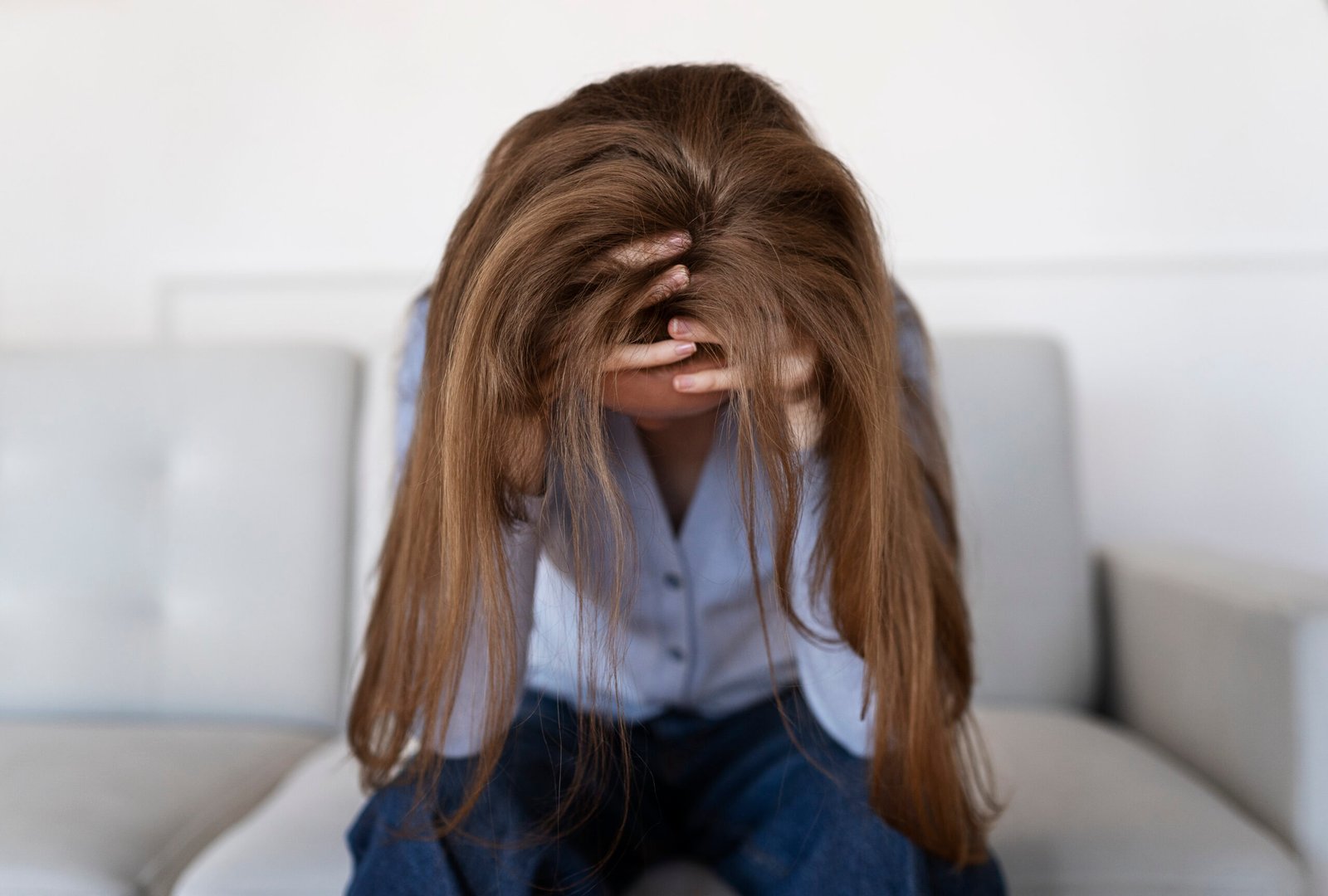Depression is a mental health condition that affects millions of individuals worldwide, frequently leaving them feeling hopeless, alienated, and overwhelmed. Despite its ubiquity, depression remains largely misunderstood, resulting in stigma and a lack of appropriate care. In this article, we will look at the origins, symptoms, and potential treatments to depression, emphasizing the necessity of seeking professional help, such as seeing a psychiatrist in Lahore for people residing in Pakistan.
What is depression?
Depression, commonly known as Major Depressive Disorder (MDD), is more than simply being sad or going through a difficult time. It is a chronic mood condition that affects how a person feels, thinks, and manages daily tasks like eating, sleeping, and working. It’s not something you can “snap out of” or overcome with determination alone. Depression can have major consequences for both physical and mental health if not managed.
Causes of Depression
Understanding what causes depression is difficult since it can result from a mix of genetic, biochemical, environmental, and psychological variables. Listed below are some of the most common causes:
Genetics.
According to research, those who have a family history of depression are more likely to suffer from it themselves. Genetics may influence how the brain manages neurotransmitters such as serotonin and dopamine, both of which are essential for mood and emotion regulation.
Biochemical Imbalances
An imbalance in brain chemistry can lead to the development of depression. Neurotransmitters such as serotonin, dopamine, and norepinephrine contribute to regulate mood. When their levels are interrupted, they may experience depression, weariness, and a loss of motivation.
Hormonal Changes.
Hormonal imbalances caused by illnesses such as thyroid disease, menopause, or postpartum depression can have a substantial impact on mental health. Hormonal fluctuations can induce or worsen depression.
Trauma & Stress
Traumatic events such as abuse, loss of a loved one, or financial hardships can cause depression. Long-term stress exposure is also known to have an impact on how the brain responds to stressful events.
Medical conditions.
Chronic conditions such as heart disease, cancer, diabetes, and chronic pain are frequently linked to an increased risk of depression. The stress of managing these disorders, combined with potential physical restrictions, can have a significant influence on a person’s mental health.
Substance Abuse.
Substance misuse, particularly with alcohol or drugs, has a strong link to depression. Substance use may provide momentary comfort, but it frequently worsens symptoms in the long run, resulting in a vicious cycle of reliance and emotional distress.
Symptoms Of Depression
Depression can present in a variety of ways, and not everyone will have the same symptoms. However, some typical indications are:
Persistent sadness or irritability
The major sign of depression is a persistent sense of melancholy, emptiness, or anger that lasts longer than two weeks. This emotion persists even after engaging in previously enjoyable activities.
Decreased interest in activities
People suffering from depression frequently lose interest in activities they once enjoyed, such as hobbies, sports, or socializing with friends. This lack of participation can exacerbate feelings of loneliness and detachment from others.
Appetite and sleep patterns changes
Depression can cause overeating or loss of appetite, which commonly results in weight gain or loss. Similarly, it can cause insomnia (difficulty sleeping) or oversleeping, which disrupts daily life.
Fatigue and Lack of Energy.
Even after a full night’s sleep, people with depression may feel weary and unable to do even the most basic chores.
Concentration Issues
Depression can affect cognitive abilities such as memory, attention, and decision-making. This can show as an inability to concentrate on job or school tasks, as well as trouble recalling information.
Sense of worthlessness or guilt.
People suffering from depression may sense intense guilt or feelings of worthlessness, often believing that they are a burden to others.
Suicidal thoughts.
In severe circumstances, depression can lead to suicidal ideation or behavior. If someone displays such views, quick professional help is required. Talking to a psychiatrist in Lahore, or any other certified mental health practitioner, can help you overcome these harmful feelings.
Seeking Help with Depression
If you or someone you know is suffering from depression, you should get help from a healthcare professional. Depression is treatable, and early intervention can greatly enhance the prognosis. Here are a few therapy options:
Therapy.
Cognitive-behavioral therapy (CBT), interpersonal therapy (IPT), and psychodynamic therapy are all evidence-based treatments for depression. These therapies seek to identify and change negative thought patterns, address interpersonal issues, and investigate the underlying emotional conflicts that contribute to depression.
Medication.
Antidepressants are frequently administered to assist balance the brain’s neurotransmitters. These drugs consist of selective serotonin reuptake inhibitors (SSRIs), serotonin-norepinephrine reuptake inhibitors (SNRIs), and tricyclic antidepressants (TCAs). A psychiatrist in Lahore, or another mental health specialist, can prescribe and manage these medications to ensure their efficacy.
Lifestyle Changes.
Lifestyle adjustments, in addition to therapy and medication, can be very effective in treating depression. Regular exercise, a balanced diet, and adequate sleep all help to improve mental health. Reducing alcohol and drug usage, as well as stress management practices like meditation or yoga, can have a favorable impact.
Support Groups.
Joining a support group can provide those with depression a sense of belonging and understanding. Sharing experiences with others going through similar problems can help to minimize feelings of loneliness and encourage recovery.
Holistic Approaches
Some patients benefit from alternative treatments such as acupuncture, meditation, and herbal supplements. While these treatments may not be a replacement for traditional therapy or medicine, they can be used in conjunction with a full treatment plan.
The role of psychiatrists in treating depression
A psychiatrist in Lahore can help diagnose and treat depression, especially in more severe or complex instances. Psychiatrists are medical professionals who specialize in mental health diseases, such as depression. They are qualified to diagnose both the medical and psychological elements of depression and provide a variety of treatment choices.
For those residing in Lahore, finding a good psychiatrist can be the first step toward rehabilitation. A psychiatrist in Lahore can provide specialized care tailored to each individual’s needs, whether through therapy, medication, or a mix of the two.
Overcoming the Stigma of Depression.
Despite advances in mental health awareness, many people are still embarrassed to seek treatment for depression due to societal stigma. This stigma can prevent people from getting the care they need, exacerbating their condition over time. Educating yourself and others about the facts of depression might help you overcome these barriers.
Final Thoughts
Depression is a serious, yet treatable, disorder that affects millions of individuals worldwide. Understanding the reasons, recognizing the symptoms, and getting proper treatment can assist persons suffering from depression in reclaiming their lives. There is hope for healing, whether via treatment, medication, or the support of loved ones.
If you are in Lahore and are experiencing depressive symptoms, please contact a psychiatrist in Lahore. Professional assistance can provide the guidance and resources required to negotiate this difficult illness, resulting in greater mental health and well-being.
Taking the initial step in getting help is typically the most difficult, but it can be life-changing. Remember that depression is not a sign of weakness; it is a medical illness that needs and deserves treatment.




